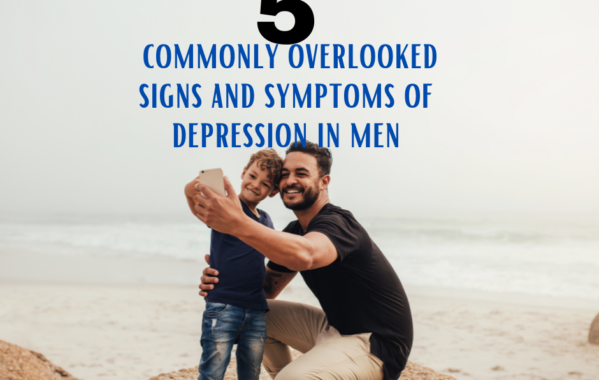8 ways to teach your kids emotional resilience in 2020

It was a normal Saturday at the Walters home. Kids doing chores, mom had just gone grocery shopping and was now cycling laundry and Dad was working hard outside. Well, maybe it was a little different than a “normal” Saturday because the day before they had just got the news that the 4 school-age kids in the house wouldn’t be going back to school for at least 2 weeks because of the crazy outbreak of the Corona Virus.
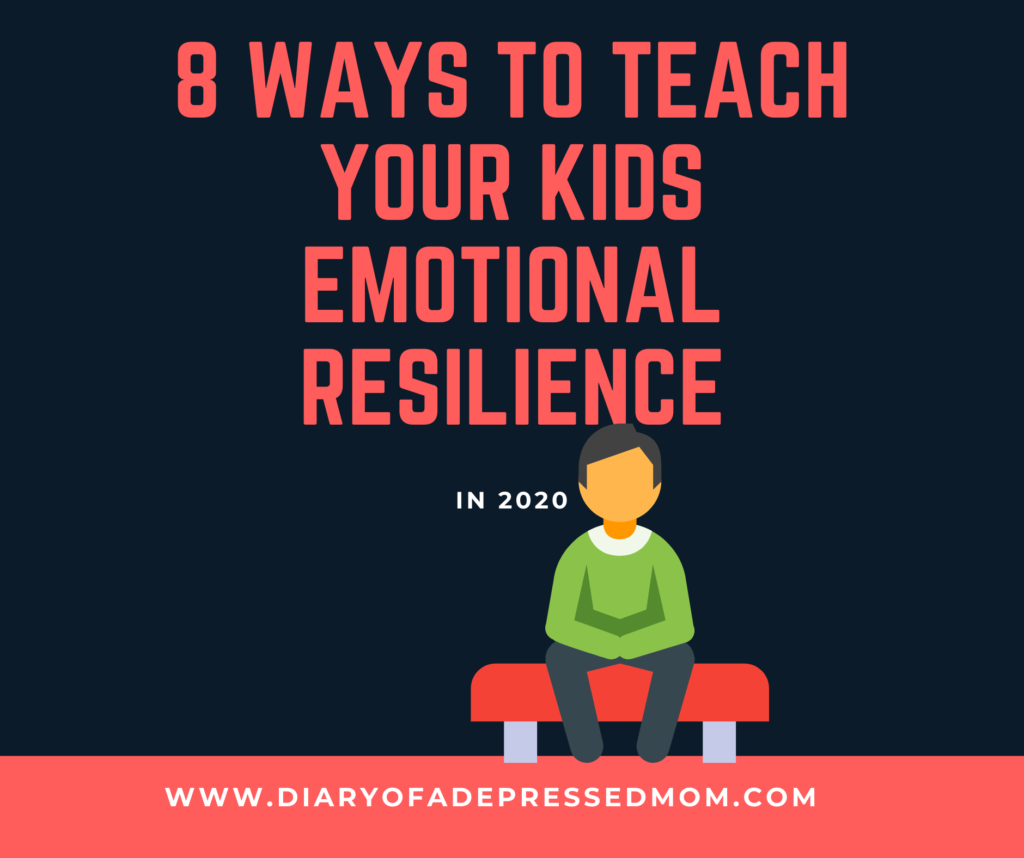
Because of Her older siblings celebrating their extended spring break I kinda forgot to check in with my 6-year old H and ask how she was feeling about all the news.
I was putting groceries away and heard a faint noise of sobs coming from the formal dining room. I looked over and realized my little H was cleaning and crying at the same time. At first glance, I figured she was probably upset because she didn’t want to be doing more chores, so I asked her to come to me. “What is wrong hon?”, I asked. “I’m just so worried about this whole Corona Virus thing everyone is talking about”. “My 2 friends in my kindergarten class were gone all last week because they are sick, what if they have the Corona Virus and they die, and then I will never see them again?”
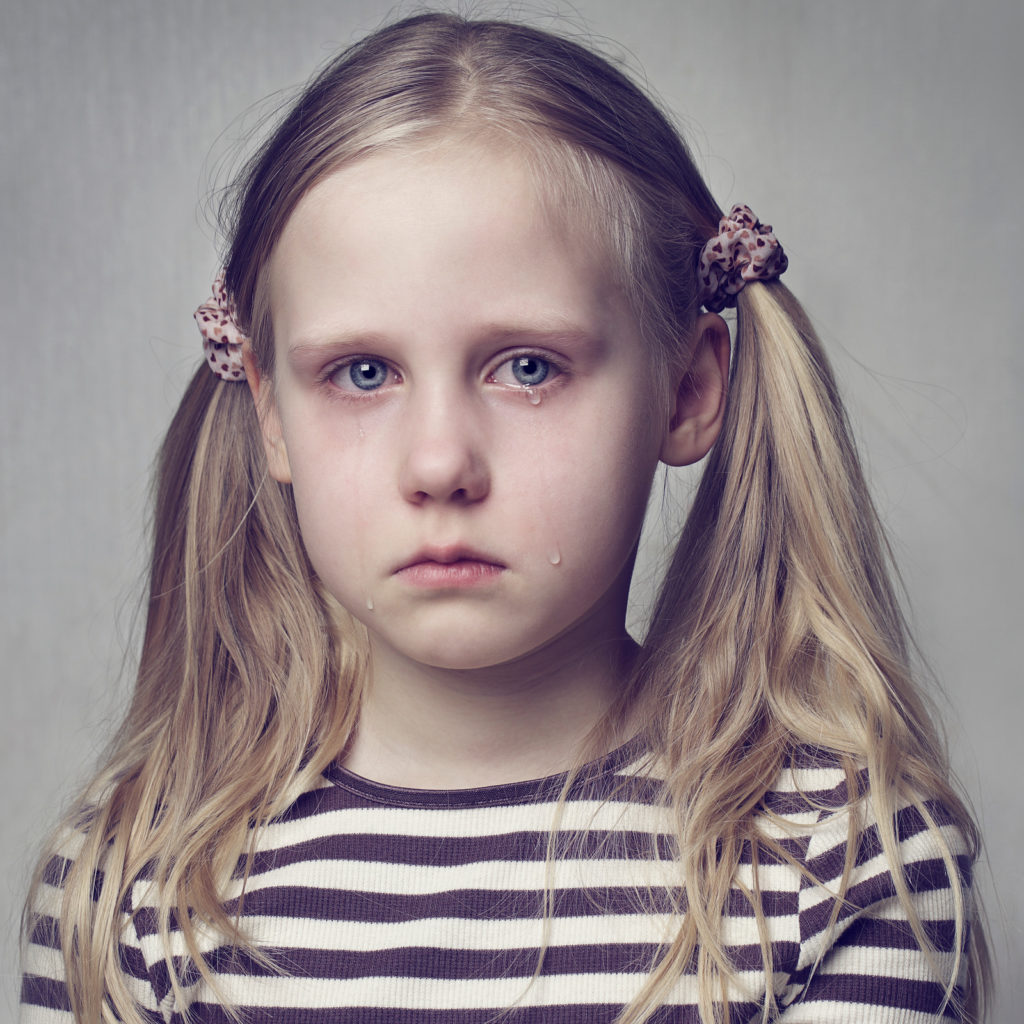
My heart sunk… I had been so wrapped up in the way I was handling it myself constantly feeling panic or thoughts of “everyone is overreacting,” I hadn’t even thought about how she might be feeling about all of this craziness. Immediately I hugged her and comforted her with words of reassurance that her friends were perfectly fine and that they would be back to school in no time. After that, I quickly texted their mothers to find out what was going on with them. They texted back and let me know that they had the flu but were on the mend.
I wanted to make sure my little H was completely and totally at ease and happy and that she didn’t have to worry at all about her friends or any of this COVID-19 stuff, so she could go on living the sheltered innocent life she had always known. I sat there and thought about what I was saying and doing to help her quickly recover and the thought came to me, “maybe you are going about this all wrong…?”.
I didn’t want my daughter to feel sad, scared, or uncertain about the future but at the same time, I wanted her to learn that just because we are sad or uncertain and have “all the feelings” doesn’t make what is happening fact or fiction.
And that ultimately what happens with all of this coronavirus stuff or anything else life might throw her way she was going to be alright, it was all going to be ok.
I want her to learn emotional resilience at a young age. I want her and all my children to be strong, not just physically healthy but also emotionally able to conquer life’s battles whatever they may be.

Now you might be finding yourself asking, what exactly is emotional resilience anyway?
Probably my favorite definition of Emotional Resilience would be this one I found here It says Emotional resilience refers to one’s ability to adapt to stressful situations or crises. More resilient people are able to “roll with the punches” and adapt to adversity without lasting difficulties; less resilient people have a harder time with stress and life changes, both major and minor.
In a short way, it just means being able to continually bounce back no matter what comes at you in life.
Being able to accept that trials and life experience can be hard but with the right tools in our tool belt, we can push through and maybe eventually be a stronger better person for it in the end.
So how do we teach our kids to have this so-called emotional resilience, when sometimes we might not feel like we have mastered it ourselves?
Great question!
Please leave your answers below in the comments section. The answer that is the easiest for me to do, wins a complimentary trip to China or Italy! (I know, I know not funny).
Well, since I am still learning what it means to be emotionally resilient myself I will do my best to share with you some things that I have learned along the way.
#1 Just because they want something doesn’t mean they get it.
First things first (my mom wishes I would have learned this at a much younger age), help your kids realize just because they want something, pray for something, cry for something doesn’t always mean they get it.
It’s so easy to want to make our kid’s lives as smooth sailing as possible. But you and I both know “smooth seas never made a skilled sailor”.
Let’s put it from God’s perspective, he loves us with a greater love than we will ever understand during our earth life, but he still allows us to experience hardships, trials, even tragedy at times. Why does he do this if he loves us? (hint..the answer is in the question…) Because he loves us he allows us to be sad, hurt, or even damaged so we can eventually grow, empathize, and understand His purpose for our lives.
The same thing goes with our own children, we love them so much, how can we watch them suffer and not do everything to take the pain away from them? The same old reason, because we love them enough to teach them that it’s not the way life works. Things aren’t always fair, or easy, or fun, or wanted.

Try this next time you see your child sad because of something that happened that was hard for them, (yes you can still give them love and support for crying out loud) but Instead of saying “what can I do to make you feel better?” ask them this question, “What could you do to help yourself feel better?” It might sound heartless at first but as soon as you help your child realize the answer to their problem lies within themselves they automatically feel uplifted, empowered, and able to pull through.
For example, I used to live in Philadelphia and when I would drive downtown or to a new place in the city I made sure my GPS was turned on and ready to give me the exact route I should travel to get to my destination quickly and safely. Time after time I used it, but one day it stopped working in route to the Philadelphia Zoo, I started panicking because I didn’t have a GPS telling me my every move or giving me alternative routes to be able to make it to where I was going. So I had to use my own brain to figure out how to navigate the area on my own. It took me quite a while but eventually, after going down many wrong roads I found where I wanted to be going. After that day I never had to use my GPS to make it to the zoo again because I had been forced to figure it out by myself. After that, the right route to travel was easy for me.
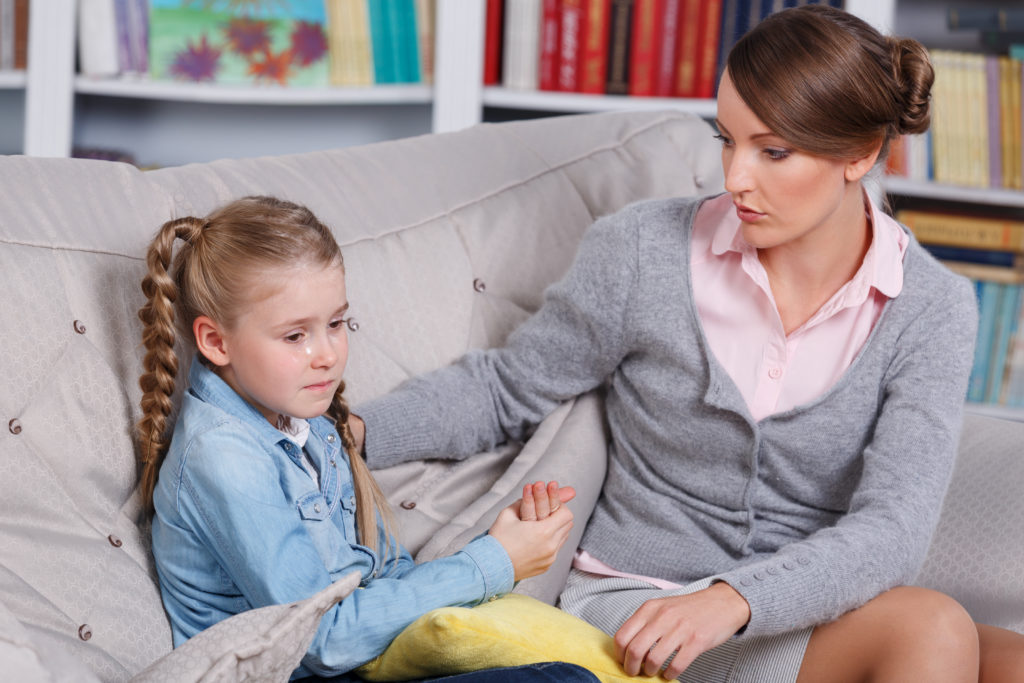
And so it is with our children, allowing them to figure out some of their struggles mostly on their own lets them learn how to eventually navigate through their own struggles more quickly. You can give them ideas of things they could do if you find them doubting themselves or struggling to figure it out, but try to let them make the final decision of what will ultimately help them.
#2 teach them to turn to God
Teach your children the realistic technique of working through fear and anxiety. Help them learn coping skills such as deep breathing, meditation, and exposure (more on this topic to come). Let them know fear and anxiety in extreme cases are not our friends unless we use them to get closer to God.

Teach them how to pray, how to turn their burdens over to God. How to have a real-life relationship with Him. Teach them that he is always there no matter who else comes and goes in their lives. Make sure they know you love them and that He loves them unconditionally. No matter what is going on, he always has their best interest at heart. Teach them he is ALWAYS there regardless of them feeling His presence or not.
Prayer is a tool of connection that is faster and more powerful than any wireless network we could ever need or imagine possible. It works 100% of the time. There are no blackout dates or quarantined measures that can break the constant communication we can have with our Heavenly Father. Teach them to not just talk to him, but to listen to him. His voice will always be a voice of peace, never one of panic or fear.
#3 You don’t have to sugar coat everything for them.
That being said there are certain ages for certain types of necessary exposure. It’s ok for our children to know that the world isn’t perfect, that mom isn’t perfect, that dad isn’t perfect, and that they aren’t perfect either (and that is exactly the way it is supposed to be). We all make mistakes, some take longer to recuperate from, but this is ok. We will continue to keep making mistakes until we die (it’s part of life). But with mistakes comes lessons learned and experience had. Life can be tough, and happy at the same time.
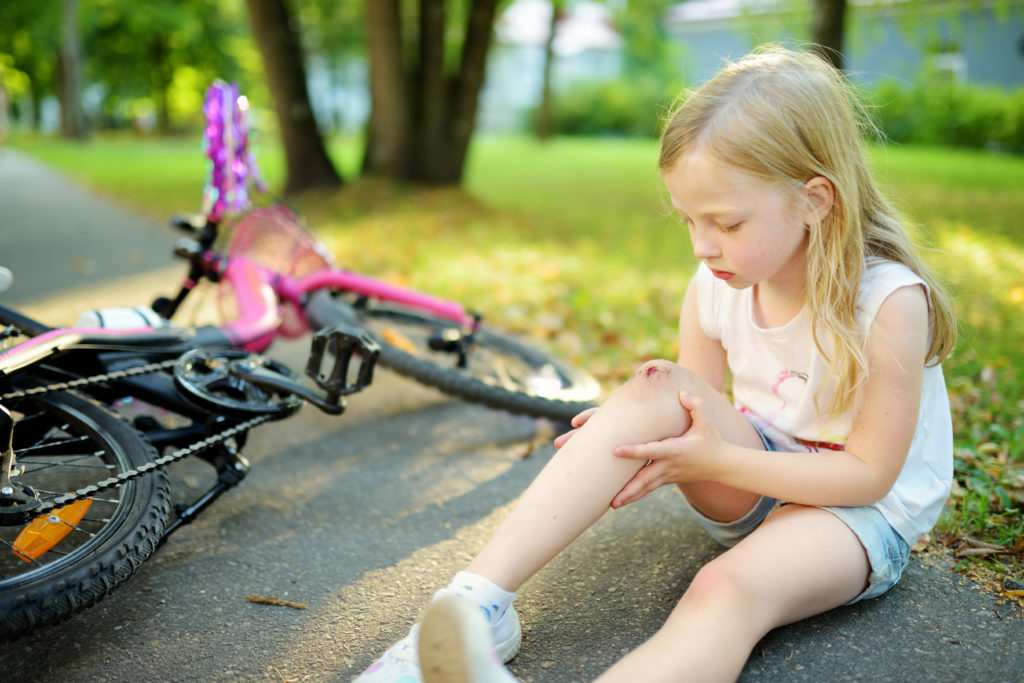
We get up, brush ourselves off, and keep on keeping on. There is no such thing as failure as long as we keep trying in our own ways. Take a deep breath, realize it’s hard but never give up. You are tougher than you think.
Endure. Endure. Endure.
The sun eventually shines again and until it does we don’t have to panic and worry about the things we can’t control.
#4 Get outside help when they need it

Teach them that even though they can find answers within themselves and with God it is always ok to reach out for more help when they need it. It is not a weak person who asks for help from someone with a different perspective or different experience, it’s actually quite the opposite. We all have different strengths and we should use ours to help others and allow ourselves to rely on other people’s strengths at the same time. We need each other for perspective and for love and support. Being an emotionally resilient person does not mean we don’t need help getting through tough times. Especially if we are talking about more tragic mental health problems.
#5 Teach them to use positive self-talk
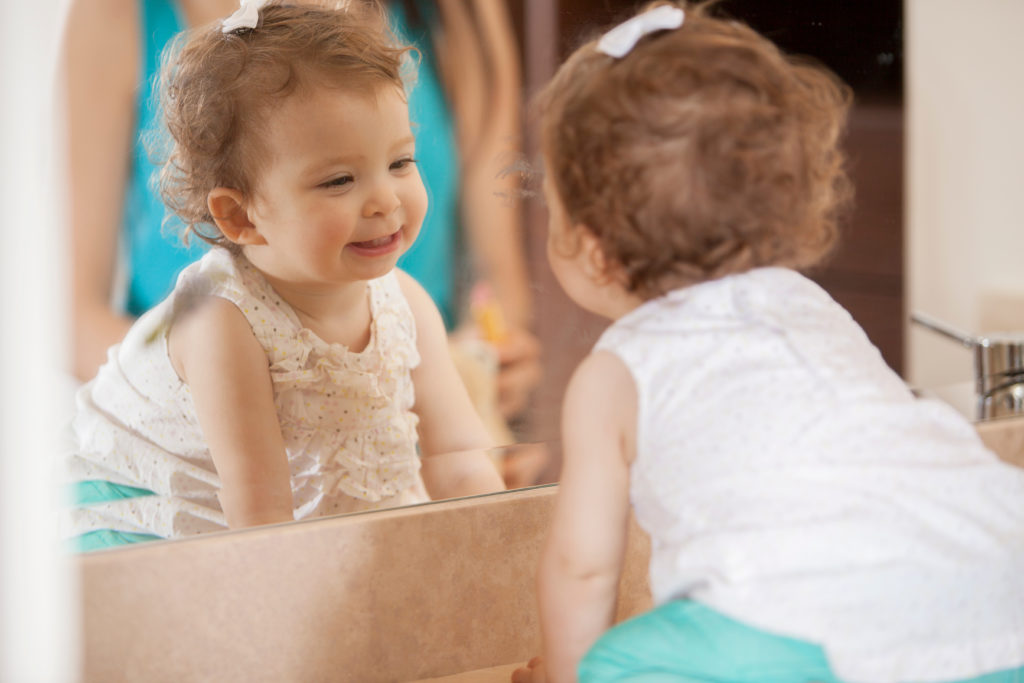
We have all heard the saying “Sticks and stones may break my bones but words will never hurt me”. While that sounds awesome in theory, it couldn’t be further from the truth. We all know that words we say to others have the power to make or break them. The words we are constantly talking to ourselves have the exact same impact. The best way to teach a kid how to talk positively to themselves is by talking positively ourselves. If they hear you constantly put yourself down or demean yourself they might start to feel like it is the natural way they should talk about themselves too. Something like, “I am never going to be able to accomplish this.” Could be changed around into “What can I do right now that will help me reach my goal”. Sounds a little cheesy but the reality is our brains believe what it is consistently hearing.
#6 Let go of the need to always control
Help them learn to let go of feeling like they always need to be in control. No matter their birth order they can’t control the outcome of every situation. Maybe they get to choose the theme and outdoor location of their 7th birthday party but they can’t control if it rains or not. A backup plan will reassure them that a good time can still be had regardless of if it ends up indoors or outdoors.
Helping them recognize moments they do get to choose and moments they don’t will help them be armored with being ok no matter what comes their way.
#7 Teach them to lean into their struggles, that they don’t have to always try to escape them.
This one is a hard one, no one wants to sit with their troubles and accept that it might be their new reality. But sometimes it’s not up to us. In the world we live in today most everything we need and want can be ours almost instantaneously. As adults, we may have known a different life growing up but this is the life our children have always known. Maybe it used to come more naturally that things take time, but now in this day in age, this concept is a hard one to grasp.
Teach them it’s ok to feel things and not always try to escape those feelings as fast as they possibly can.
Why is it when we have a child that is crying and upset for something like they have to miss a play date with a friend because they are sick (or anything else) why do we immediately feel the need to get them to stop crying. Maybe we even follow it up with saying something like “you are acting ridiculous, it’s just a play date you can play with them another day!” Or even the opposite, saying something to the effect of “if you stop crying and so you aren’t sad I’ll let you have ice cream when we get home”. What is so bad about letting them sit with their sadness? Letting them have a good cry but still being there to give them a hug and say I’m sorry this is hard for you?
My oldest daughter had dreamt about getting a hamster for a long time. After years of trying to convince her dad that she was responsible, and after saving up enough money by herself she finally got permission to buy her first pet. She spent hours researching and planning out the perfect life for her hamster. After she bought her (she named her tulip) she was so happy. She took good care of her, made sure she was fed enough day and night. She even rescued her when she escaped out of her cage a few times and played with her on a regular basis.
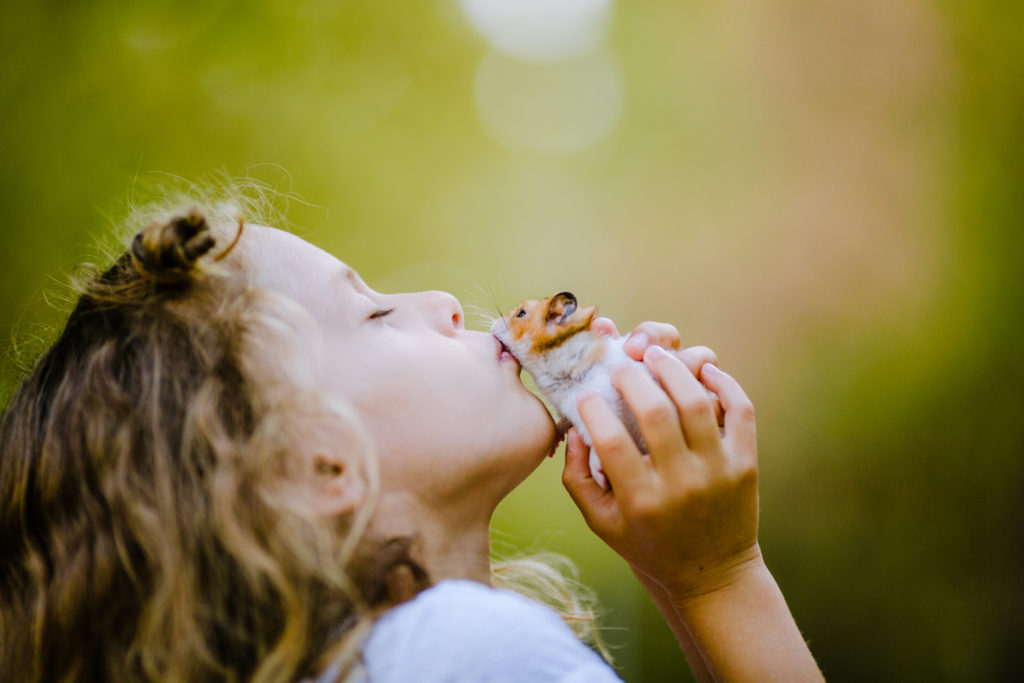
After about 8 months of owning her, she went in to check on her and realized she was barely breathing. My E was immediately heartbroken. She frantically researched the interent what she could do to “fix” her and bring her back to full health. She got her dads stethoscope and listens to her heartbeat, she massaged her chest trying to improve her circulation, she even got a drinking straw and blew breaths of air into her tiny mouth. After saying a prayer asking God to heal her, Tulip seemed to be slowly improving which gave E a big sense of hope, but sadly less than an hour later Tulip took her last breath of life and laid stiff in E’s hands.
as you can guess E sobbed and sobbed. She was so sad that the hamster she loved was now gone. I felt so bad for her. I wanted to make it all ok but I had no way of fixing what had happened I held E in my arms and let her cry. I didn’t say anything except that I was so sorry she was so heartbroken.
Not knowing how E would be the next morning after Tulip died I was almost scared to bring it up again. Surprisingly E seemed to be doing ok. She gave Tulip a proper burial and told me how she let her brothers have her cage to use for any little critters they might find in the woods.
I was blown away at the recovery that had happened without me doing anything but hugging her and telling her I was sorry. Obviously not all sadness ends with a quick recovery but just letting them take their time and them knowing that they have our support can help immensely.
Our children need to know we care but that we can’t always take their pain away or make what they don’t want to happen not happen.
#8 Have faith and carry on.
Perhaps one of the most important things we teach our children is that when all else fails and though we may not find answers or understanding to every desire and wish we have. It all works itself out in the end. Teach them to have faith in the unknown and to carry on no matter what. That no matter what is going on this challenge is just temporary. Eventually, as they grow older they might even look back at their struggles and say with certainty as Nacho Libre did,
“My life is good, my life is real good!”

What are some ways you teach your kids to be emotionally resilient?



